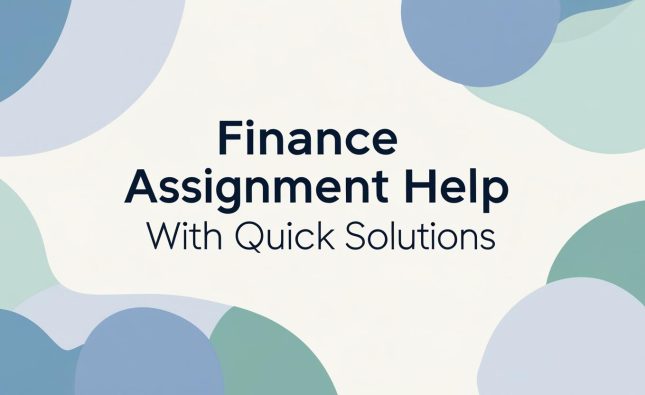
In the realm of commercial aviation, the intricacies of financial success are akin to a complex jigsaw puzzle, where airlines navigate a myriad of factors to stay airborne in an ever-evolving market. From operational efficiency to customer-centric services, these companies deploy multifaceted strategies to soar high amidst challenges.
Unveiling the Key Pillars of Financial Viability
1. Cost Management Strategies: Airlines meticulously balance expenses across fuel, labor, maintenance, and infrastructure. Fuel hedging, staff optimization, and fleet modernization play pivotal roles in curbing costs.
2. Route Optimization: Maximizing profitability by adjusting routes, flight frequencies, and seat capacities to meet demand while minimizing operational expenses remains a constant endeavor.
3. Ancillary Revenues: Airlines increasingly rely on ancillary services – baggage fees, onboard sales, and loyalty programs – as significant revenue streams beyond ticket sales.
4. Customer Experience: Striking a balance between competitive pricing and superior customer service is paramount. Loyalty programs, personalized experiences, and superior in-flight services contribute to customer retention and acquisition.
5. Technological Innovation: Investments in technology – from fuel-efficient aircraft to digital platforms streamlining operations and enhancing passenger experiences – are pivotal for staying competitive.
Weathering the Storms: Resilience Amidst Turbulence

The LDI crisis of 2008 was a major wake-up call for the investment consulting industry. As with many large-scale market crashes, it sparked intense debate about how to prevent such events from occurring in the future. One popular solution that has been discussed is to increase regulation of investment consultants, but is this the right approach? In this article, we’ll explore why regulating investment consultants may not have prevented the LDI crisis and discuss what measures could be taken to ensure similar issues don’t occur again in the future.
The 2008 LDI Crisis
The Lehman Brothers Investment (LDI) crisis was a global financial crisis that began in 2008. The crisis was triggered by the collapse of Lehman Brothers, an American investment bank. The bankruptcy of Lehman Brothers caused a chain reaction that led to the failure of other companies and the loss of billions of dollars in investments.
The LDI crisis had a significant impact on the global economy. In the United States, the unemployment rate rose from 5% in 2007 to 10% in 2009. The housing market also declined, with home prices falling by more than 30%. In Europe, the crisis led to the failure of several banks and increased government debt levels.
The LDI crisis highlights the importance of regulating investment banks and other financial institutions. If Lehman Brothers had been subject to stricter regulation, it is unlikely that the company would have been able to engage in the risky activities that led to its downfall.
The Role of Investment Consultants
Despite the fact that investment consultants are regulated by the Financial Services Authority (FSA), this does not mean that they are prevented from making poor investment decisions. In fact, many experts believe that the FSA’s regulation of investment consultants is not strict enough.
Investment consultants play a critical role in the financial world. They provide advice to pension funds, endowments, and other large institutional investors on how to allocate their assets. They also help these investors select money managers and make recommendations on investments.
While the role of investment consultant has been traditionally one of providing objective advice, there is a growing conflict of interest between consultants and their clients. This conflict arises because most investment consultants are compensated based on the amount of assets under management (AUM) they have. Therefore, they have an incentive to recommend investments that will increase their AUM, even if those investments are not in the best interests of their clients.
The LDI crisis was precipitated by a number of bad investment decisions made by investment consultants. For example, many consultants recommended that their clients invest heavily in subprime mortgage-backed securities without adequately informing them of the risks involved. As a result, when the housing market collapsed, these securities lost a great deal of value and many investors lost a significant portion of their retirement savings.
Investment consultants should be held to a higher standard than they currently are. They should be required to act in the best interests of their clients at all times and should be
Why Regulation May Not Have Prevented the LDI Crisis
When it comes to preventing future crises, many people look to regulation as the answer. But in the case of the LDI crisis, regulation may not have been able to prevent it.
There are a few reasons why this is the case. First, investment consultants are not required to disclose their fees. This means that there is no way to know how much they are being paid by the firms they recommend.
Second, investment consultants are not required to register with the SEC. This means that there is no way to track their recommendations or monitor their activities.
Third, investment consultants are not held to a fiduciary standard. This means that they are not required to put their clients’ interests first.
Fourth, there is no limit on how much consulting firms can charge for their services. This means that they can charge whatever they want, and there is no way to regulate their fees.
As you can see, there are a number of reasons why regulation may not have been able to prevent the LDI crisis. Investment consultants are not required to disclose their fees, register with the SEC, or meet a fiduciary standard. And there is no limit on how much consulting firms can charge for their services.
Alternatives to Regulation
While there are many benefits to regulating investment consultants, there are also some drawbacks. One alternative to regulation is self-regulation. This means that the industry would create its own rules and guidelines to govern itself. This could be done through an industry association or other organization. Another alternative is voluntary compliance with regulatory standards. This means that investment consultants would not be required to comply with regulations, but would do so voluntarily. This could be done by signing a code of conduct or participating in a certification program.
Conclusion
This article has examined why regulating investment consultants may not have prevented the LDI crisis. We have seen that while there are many measures in place to protect investors, they can never be foolproof and sometimes even regulations are not enough. It is important to remember that the market remains inherently unpredictable and it is up to investors to remain vigilant when selecting their investments so as to reduce exposure to risk. Ultimately, if everyone did their due diligence then perhaps this crisis could have been avoided or at least minimized its effects.
Airlines face a perennial challenge dealing with external factors – economic fluctuations, geopolitical tensions, pandemics, and fuel price volatility. The COVID-19 pandemic exemplified the sector’s resilience, prompting swift adaptations like cost-cutting measures, fleet adjustments, and operational pivots to survive the unprecedented downturn.
The Game-Changers: Disruptive Forces Shaping the Industry
Technological advancements, sustainability imperatives, and changing consumer preferences continue to reshape the aviation landscape.
1. Sustainable Aviation: With increased scrutiny on carbon footprints, airlines invest in sustainable fuels, aircraft design enhancements, and carbon offset programs to mitigate environmental impact.
2. Digital Transformation: The rise of digitalization revolutionizes passenger experiences through AI-powered customer service, contactless travel, and data-driven operational optimizations.
Ensuring Ethical and Sustainable Growth
As airlines chase profitability, ethical considerations regarding fair labor practices, environmental impact, and passenger rights remain critical. Transparency in pricing, safety, and commitment to reducing carbon emissions are now fundamental pillars of corporate responsibility.
Opinion Piece: Navigating the Skies of Financial Success in Airlines
The aviation industry, an intricate web of economic strategies and operational intricacies, remains a testament to resilience and adaptability. As airlines traverse through economic headwinds and technological revolutions, sustainability and customer-centricity are emerging as non-negotiable mandates for sustained financial success.
While revenue diversification and cost efficiencies drive profitability, the industry’s evolution hinges upon balancing financial viability with environmental responsibility and passenger welfare. The quest for financial success must align with ethical practices, ensuring a sustainable flight path for the future.
In this dynamic landscape, the key to enduring prosperity lies not only in fiscal dexterity but in embracing innovation, sustainable practices, and a profound commitment to serving passengers and the planet.
Verifying Information and Uncovering Sources
When delving into such comprehensive topics like aero-economics, thorough fact-checking and sourcing are imperative. Relying on industry reports, financial disclosures from airlines, expert interviews with aviation economists, industry analysts, airline executives, and regulatory bodies helps ensure accuracy and credibility in reporting. Cross-referencing data from multiple trusted sources and scrutinizing statistical data aids in providing a comprehensive and accurate portrayal of the subject matter.
Journalistic ethics dictate the verification of information, protecting sources’ confidentiality when necessary, and presenting a fair and balanced narrative. Ethical reporting necessitates transparency regarding conflicts of interest and a commitment to accuracy and truthfulness in storytelling.
Aero-economics, a captivating sphere where financial prowess meets operational finesse, encapsulates the intricate dance of airlines to stay buoyant in a competitive sky, a narrative both fascinating and integral to the global economic tapestry.










